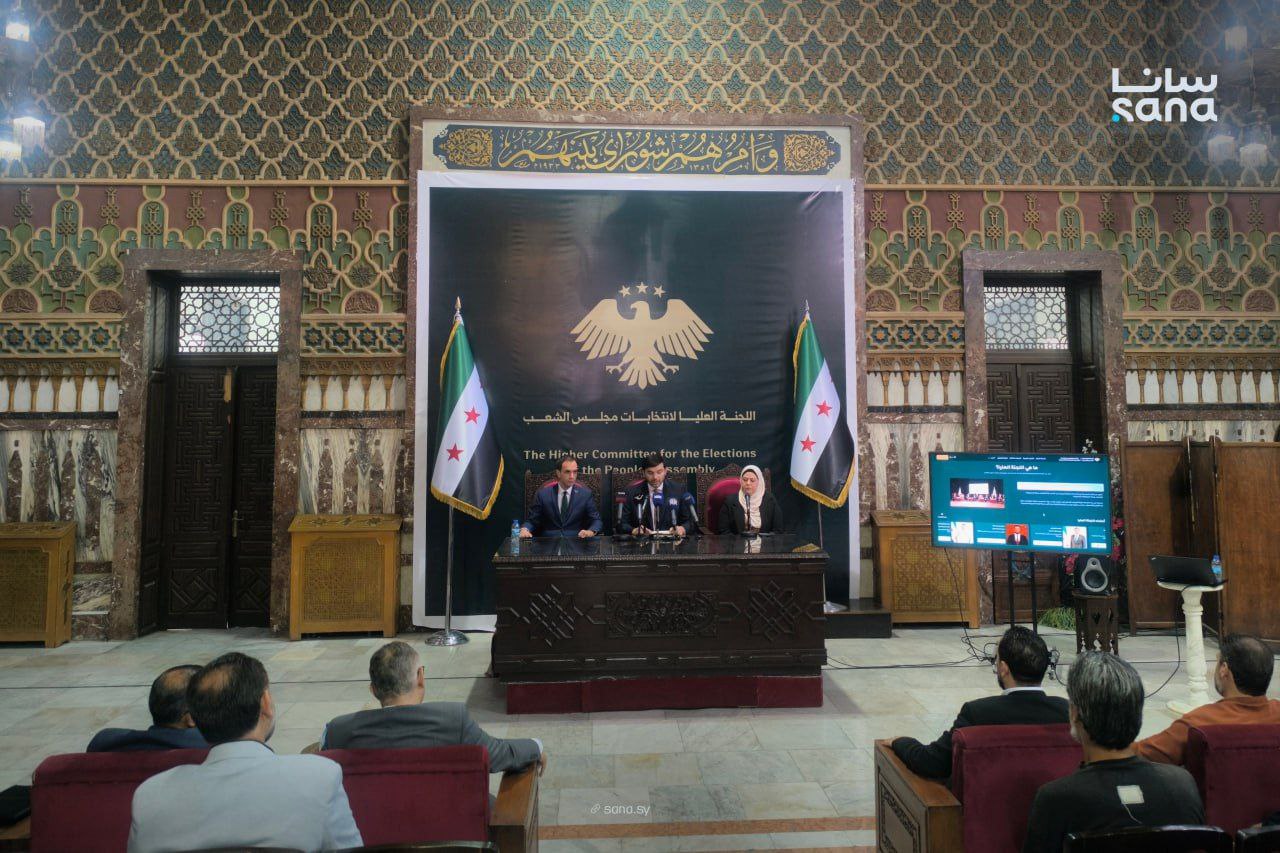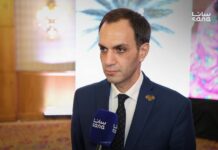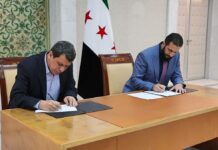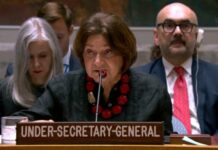
The Supreme Committee for People’s Assembly Elections launched its official website August 27 in Damascus, pledging transparency and integrity in the first parliamentary elections since the fall of the Assad regime in December 2024.
Committee spokesperson Nawar Najma told reporters that both Syrian and international organizations had requested to monitor the vote and that meetings had been held to coordinate oversight. He said the inclusion of lawyers in each electoral district marks “an unprecedented step aimed at enhancing integrity,” according to the Syrian Arab News Agency (SANA).
Najma emphasized that heads of election subcommittees will be held directly responsible for any violations, while appeals committees are authorized to adjudicate disputes over voting rolls or procedures.
Distribution of Assembly Seats Draws Attention
On August 24, the High Elections Commission issued Resolution No. 24, which distributed the 140 seats of the People’s Assembly among Syria’s governorates. Aleppo received the largest share with 32 seats, followed by Damascus and its countryside with a combined 22. Homs and Hama each received 12, while Idlib was allotted 12 spread across its cities and regions. Ten seats were assigned to both Hasakah and Deir Ezzor, six each to Daraa and Raqqa, seven to Latakia, five to Tartus, and three each to Suwayda and Quneitra.
The commission said the distribution was based on the Constitutional Declaration and recent decrees, but criticism followed from residents of areas who argued the divisions could reduce their representation. In response, the committee cited a 2011 legal framework for its decision and reaffirmed that “all regions will be represented.”
Membership Rules for Electoral Bodies
The committee this week also issued clarifications on who may serve in electoral bodies. Members must be Syrian citizens by birth or have obtained citizenship before May 1, 2025, including those under Decree No. 49 of 2011. They must be registered in their district’s civil registry or have lived there for at least five years before 2011. Candidates must be at least 25 years old, legally competent, and have no record of felonies or crimes involving moral turpitude, except in cases deemed political or security-related.
Members of the armed forces, security services, ministers, governors, and past Assembly members since 2011 are barred from serving. Candidates must also hold at least a secondary school certificate, while higher categories require a university degree.
Appeals Process and Timeline
On August 29, the committee extended the deadline for submitting appeals over membership in subcommittees to August 31. Appeals must be filed before special provincial committees based in regional justice centers.
Najma stressed that these measures reflect a “comprehensive plan to ensure transparency,” adding that the presence of legal observers in districts is designed to address concerns over past elections. The upcoming vote will mark Syria’s first parliamentary election under the new transitional framework, a step observers say will test the government’s promises of reform and public trust in electoral institutions.








